Dennis Bergkamp (Part 2)
Dennis Bergkamp (Part 2)
.png?auto=webp&format=pjpg&width=3840&quality=60)
The appointment of Arsène Wenger as Arsenal manager in September 1996 marked a turning point in Bergkamp's career. Under Wenger's guidance, Bergkamp became a crucial part of Arsenal's attacking play. Despite making fewer appearances in the 1996–97 season, he contributed 13 assists and showcased his creativity and skill on the field.
The following season, Bergkamp played a pivotal role as Arsenal secured a domestic league and cup double. He finished the season as the club's top scorer with 22 goals and was instrumental in Arsenal's remarkable turnaround in the league, closing the gap on Manchester United. In the 1998–99 season, Bergkamp continued his impressive form, finishing as Arsenal's second-top scorer in all competitions and leading the Premier League in assists. However, Arsenal narrowly missed out on retaining the league title and were defeated in the FA Cup semi-final.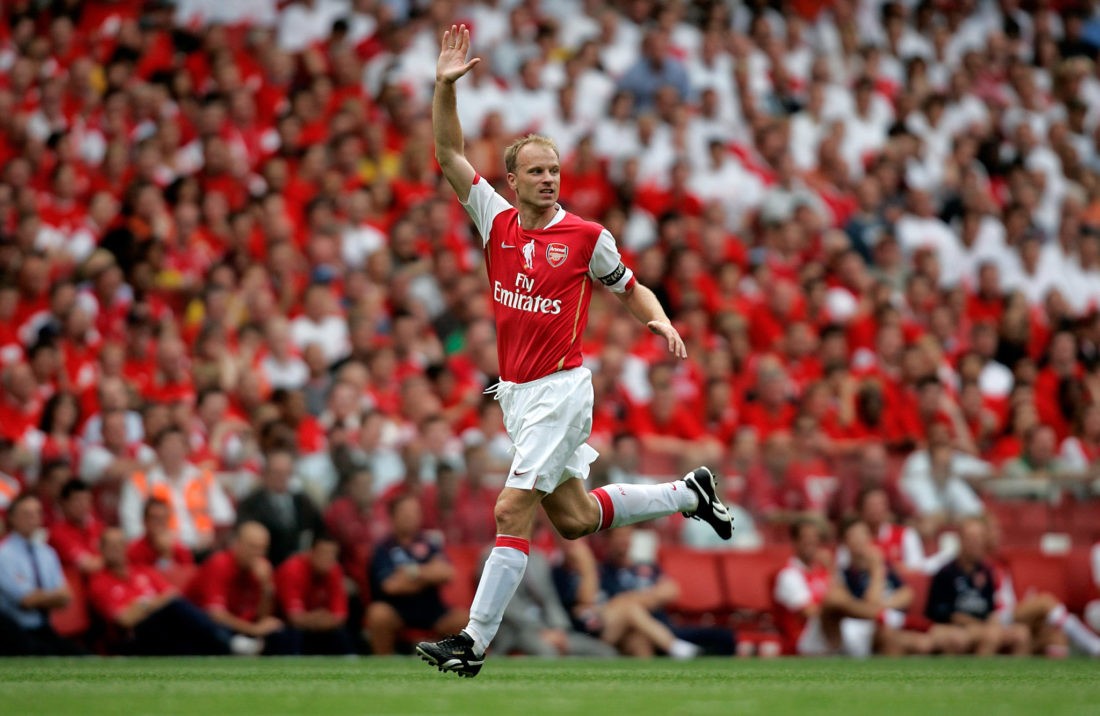
Despite frustrations in the 1999–2000 season, Bergkamp remained committed to Arsenal and signed a contract extension in December 2000. The emergence of new strikers limited his first-team opportunities, but he remained influential, particularly in crucial matches.
Success finally came in the 2001–02 season as Arsenal reclaimed the league title, with Bergkamp playing a significant role in the team's success. He continued to showcase his technical brilliance and vision, earning praise for his performances.
Bergkamp's time at Arsenal was marked by several memorable moments, including his 100th goal for the club and his contributions to Arsenal's historic unbeaten league campaign in the 2003–04 season. He ended his Arsenal career on a high note, with a testimonial match at the Emirates Stadium in July 2006, celebrating his immense contribution to the club..png?auto=webp&format=pjpg&width=3840&quality=60)
Dennis Bergkamp's international career with the Netherlands national team was illustrious, marked by significant contributions and memorable moments in major tournaments.
He made his debut for the Dutch national team in 1990 and quickly established himself as a key player. At Euro 1992, Bergkamp showcased his talent by scoring three goals in the tournament, including crucial strikes against Scotland and Germany. Despite the Netherlands' elimination in the semi-finals, Bergkamp's performances earned him recognition in the Team of the Tournament.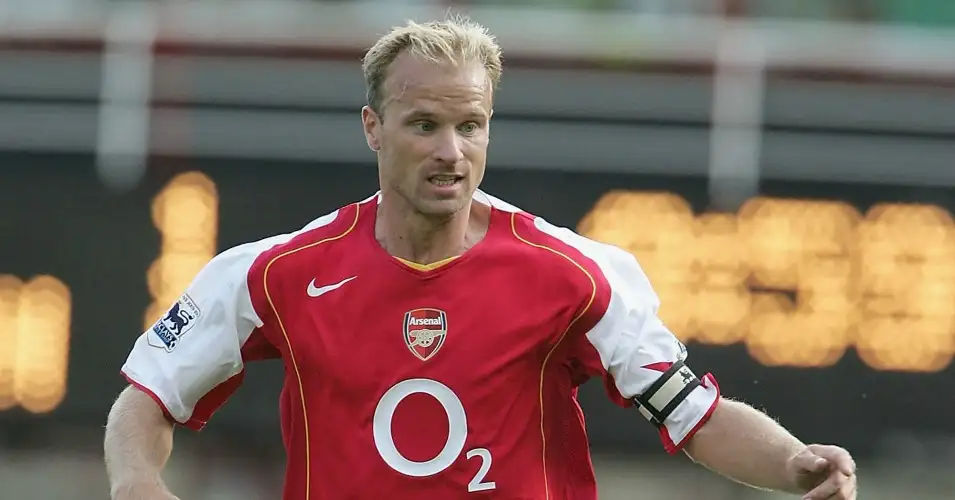
During the qualification for the 1994 FIFA World Cup, Bergkamp continued to impress, scoring five goals to help the Netherlands secure a spot in the finals. He played a vital role in the tournament, scoring against Morocco and the Republic of Ireland. His goal against Brazil in the quarter-finals remains one of the most iconic moments in Dutch football history, demonstrating his extraordinary skill and composure under pressure.
At Euro 1996, Bergkamp once again showcased his quality, scoring against Switzerland and providing an assist against England. Despite the Netherlands' elimination in the quarter-finals, Bergkamp's performances earned him praise and admiration from fans and pundits alike.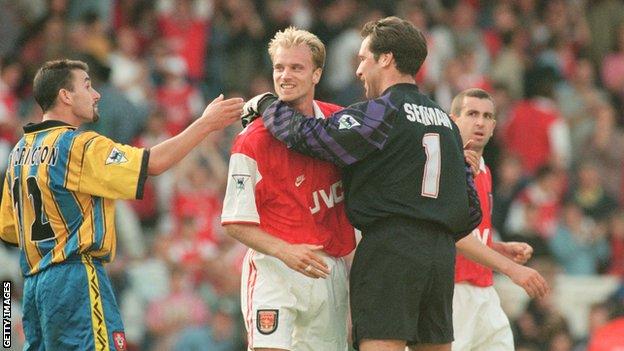
In the qualification for the 1998 FIFA World Cup, Bergkamp displayed his scoring prowess by netting a hat-trick against Wales. He carried his form into the tournament itself, scoring three goals, including the memorable last-minute winner against Argentina in the quarter-finals. His sublime control and finish in that match are widely regarded as one of the greatest moments in World Cup history.
Overall, Bergkamp's international career was characterized by his technical brilliance, versatility, and ability to deliver on the biggest stages. He remains one of the Netherlands' all-time greatest players, remembered for his significant contributions to the national team's success in major tournaments.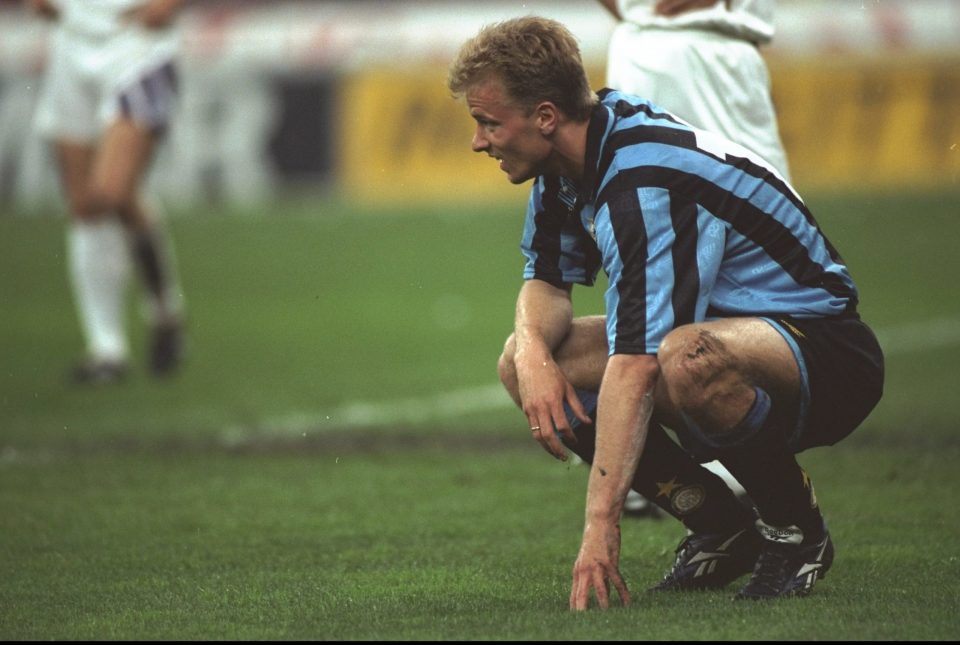
Dennis Bergkamp's international career with the Netherlands national team was marked by significant achievements and memorable performances in major tournaments.
During the 1998 FIFA World Cup, Bergkamp showcased his prowess by scoring three crucial goals for the Netherlands. He opened the scoring in the round of 16 match against Yugoslavia and played a pivotal role in the team's 5-0 victory over South Korea, contributing a goal and assisting Phillip Cocu's opener. In the quarter-finals against Argentina, Bergkamp scored a remarkable last-minute winner that has since become one of the most iconic goals in World Cup history. Despite the Netherlands' exit in the semi-finals, Bergkamp's contributions earned him a place in the All-Star team of the tournament.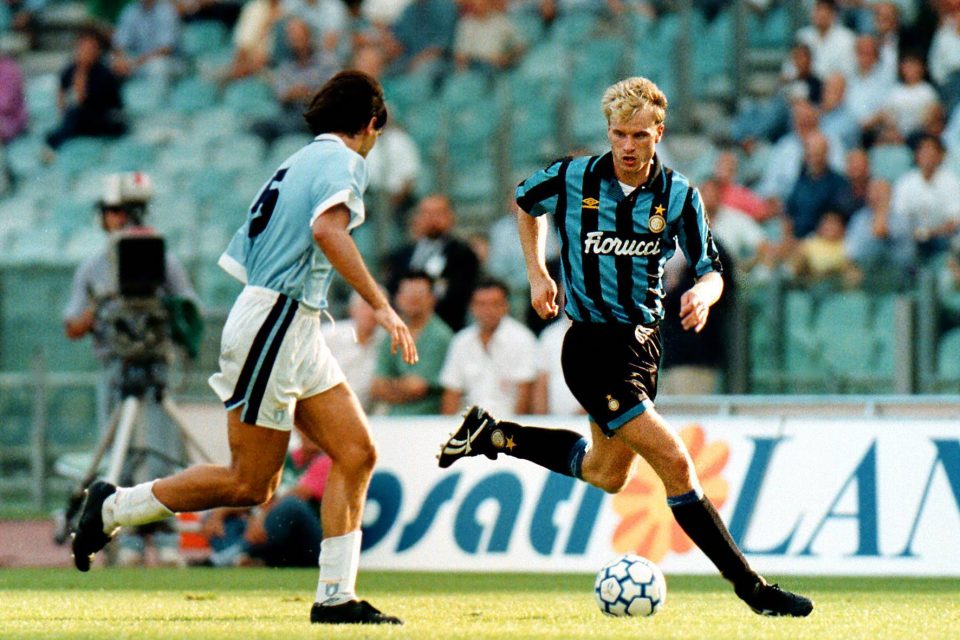
Bergkamp continued to represent the Netherlands in the Euro 2000 tournament, where he assisted three goals to help his team reach the semi-finals. Although he did not score during the competition, Bergkamp played a crucial role in setting up goals for his teammates, including Patrick Kluivert and Marc Overmars. However, the Netherlands suffered a defeat to Italy in the semi-finals, prompting Bergkamp to announce his retirement from international football. Throughout his international career, Bergkamp showcased his exceptional talent and played a vital role in the success of the Dutch national team. His contribution of 37 goals in 79 appearances left a lasting legacy, cementing his status as one of the greatest players in Dutch football history.
Dennis Bergkamp's playing style and versatility were shaped by his early experiences in Dutch Total Football, a philosophy that emphasized adaptability and a deep understanding of multiple positions on the pitch. At Ajax, Bergkamp was exposed to this approach, playing in various roles across the field, which ultimately enhanced his footballing intelligence and tactical awareness.
Initially deployed as a right winger at Ajax and later as a main striker during his stint at Inter Milan, Bergkamp eventually found his niche as a creative second striker at Arsenal. His partnership with strikers like Ian Wright, Nicolas Anelka, and Thierry Henry flourished as he operated in a deeper, playmaking role behind the primary striker.
Bergkamp's ability to roam freely across the attacking areas of the pitch made him a nightmare for defenders to mark. His exceptional ball control, dribbling skills, and vision allowed him to orchestrate attacks, create space for teammates, and deliver incisive passes. Despite his natural scoring instincts, Bergkamp often derived more satisfaction from setting up goals rather than scoring them himself.
However, Bergkamp's playing style wasn't without controversy. He was often accused of diving and engaging in physical altercations with opponents, earning him a reputation as a "cheat" or "dirty player" by some. Nonetheless, his former manager Arsène Wenger defended him, attributing any aggressive behavior to the necessity of toughness in the competitive world of football, particularly during Bergkamp's time in Serie A with Inter Milan.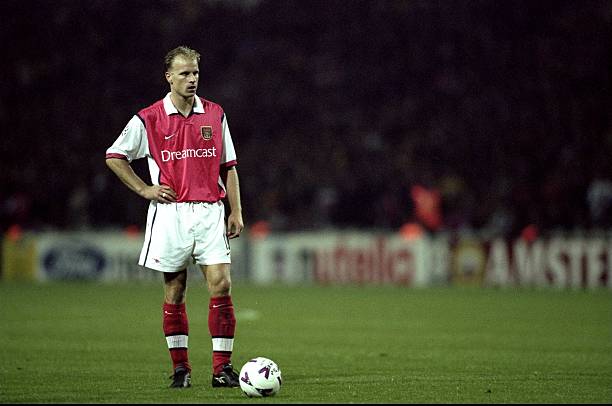
Despite the criticisms, Bergkamp's impact on the game and his legacy as one of the most technically gifted players of his generation remain undeniable. His versatility, creativity, and footballing intelligence made him a true maestro on the pitch, capable of dictating the flow of the game and producing moments of brilliance that endeared him to fans worldwide.
References
- Maas, J.G. (22 August 2006). "Op een mooie zondagmorgen" [On a lovely Sunday morning] (in Dutch). Geuzenmiddenmeer. Archived from the original on 21 August 2017. Retrieved 9 March 2017.
- a b c d e f g h i j k Lovejoy, Joe (14 November 2004). "The Big Interview: Dennis Bergkamp". The Sunday Times. London. Archived from the original on 19 May 2014. Retrieved 28 April 2012.(subscription required)
- ^ "Dennis is worth wait in gold; The FA Cup quarter-finals: Bergkamp has not played too often, but he's still producing masterpieces". Evening Standard. London. 8 March 2002. Retrieved 28 April 2012.[permanent dead link](subscription required)
- ^ "Dennis Bergkamp factfile". Sporting Life. 19 December 2002. Retrieved 28 April 2012.[permanent dead link]
- a b Harris, Harry (2 January 1998). "Dennis is worth wait in gold; The FA Cup quarter-finals: Bergkamp has not played too often, but he's still producing masterpieces". The Mirror. London. Retrieved 1 May 2012.[permanent dead link](subscription required)
- ^ "Dennis Bergkamp: One-on-one". Four Four Two. February 2011.
- ^ "Ajax 2–0 Roda JC". Voetbal International (in Dutch). Retrieved 28 April 2012.
- ^ "Ajax 6–0 Haarlem". Voetbal International (in Dutch). Retrieved 3 May 2012.
- ^ "1986/87: Ajax revive their traditions". UEFA.com. Union of European Football Associations. 1 June 1987. Archived from the original on 3 May 2010. Retrieved 14 March 2012.
- ^ "1991/92: Ajax complete clean sweep". UEFA.com. Union of European Football Associations. Retrieved 11 May 2012.
- ^ "Ajax – sc Heerenveen". sc-heerenveen.nl. SC Heerenveen. Archived from the original on 7 November 2012. Retrieved 11 May 2012.
- ^ "Deze week ... 17 jaar geleden". Ajax.nl (in Dutch). 11 February 2009. Archived from the original on 21 October 2012. Retrieved 11 May 2012.





































